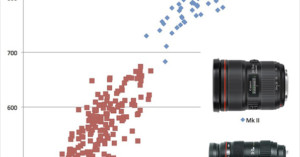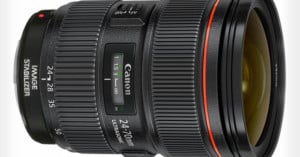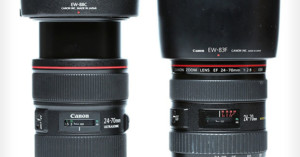
Stabilized Canon 24-70mm f/2.8L On the Way, But May Be A Year Away
After the Canon 24-70mm f/2.8L Mark II was announced at the beginning of this year, many photographers were disappointed that it didn't include Image Stabilization. When October rolled around, there were new rumors that Canon had an IS version of the 24-70mm up its sleeve. The company did, but it wasn't what people were expecting. When the new IS lens was unveiled in November, it was an f/4 lens rather than an f/2.8.
If you're one of the many people who wanted both the convenience of having IS and the benefits of having f/2.8, here's some good news: there is indeed a 24-70mm f/2.8 IS on the way.



